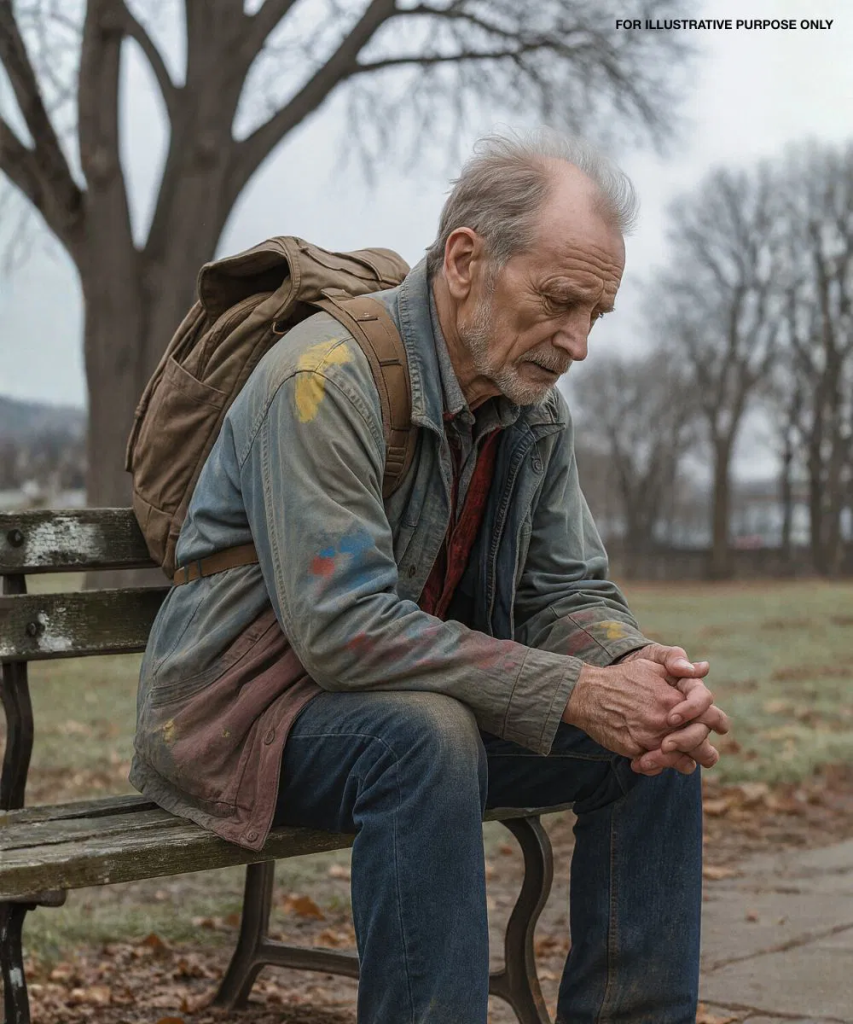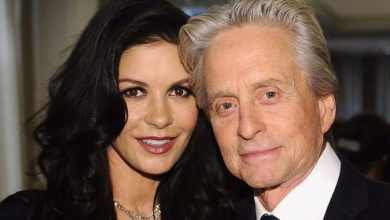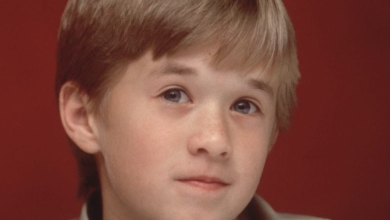The son sent his father away at his wife’s urging… but an unexpected meeting in the park changed everything.

Harold Whitman, a retired history teacher from Ohio, had spent his life teaching others about legacy — how kindness, words, and quiet deeds outlast the years.
When his wife, Eleanor, passed away from cancer, Harold found solace in caring for his grandson, Ethan, while his son Michael worked long hours as an accountant and his daughter-in-law Rebecca ran the household with strict order and endless routines.
At first, Rebecca tolerated Harold — his stories, his slow pace, his habit of humming Sinatra tunes while brewing coffee. But soon, she began to sigh when he forgot to rinse a mug or turned the television too loud.
One night, Harold overheard her whisper, “He’s kind, but this isn’t an assisted living home.”
Michael said nothing. That silence wounded him deeper than words ever could.
Before dawn, Harold quietly packed a few belongings — a framed photo of Eleanor, his reading glasses, and the wool coat she’d knitted the winter before she died. He left without a word, not wanting to be a burden any longer.
Snow fell softly as he walked through the sleeping town. Every corner carried a memory — the bookstore where Eleanor had bought him a fountain pen, the diner where Michael had once spilled his first milkshake.
Eventually, his steps led him to the park where he and Ethan used to feed the ducks. Weary, he sank onto a bench and stayed there through the night, shivering but too proud to ask for help.
At sunrise, a familiar voice called out.
“Mr. Whitman? Is that really you?”
He looked up to see Margaret Lewis, his college sweetheart — the woman he’d nearly married fifty years ago before life took them separate ways. Now a retired nurse, she stood before him with a bag of groceries and the same gentle eyes he remembered.
Without a question, she brought him to her small yellow house at the edge of town. She brewed him tea, wrapped a blanket around his shoulders, and simply said, “You’ll stay until you’re warm again.”
Days blended into weeks. Harold began repairing small things around her home — the squeaky hinge, the broken heater, the clock that hadn’t ticked in years. In the evenings, they sat by the window, reminiscing about students, families, and all the time that had quietly slipped away.
But one night, Harold collapsed while changing a light bulb.
The doctors said his heart was weak — worn from worry and exhaustion. Margaret stayed by his side, reading aloud from his favorite books and playing the old records he loved.
When he awoke one morning, he whispered, “I wish I could see Ethan again — just once.”
Margaret made the call.
A few days later, Michael arrived — alone. Rebecca had left, taking the house and the quiet distance that had grown between them. He stood in the doorway, guilt heavy in his voice.
“Dad… I don’t deserve to be here.”
Harold managed a faint smile. “You came — that’s what matters.”
Michael knelt beside the bed, his voice breaking.
“I should’ve defended you,” he said. “I should’ve been the kind of son you were to me.”
Harold took his hand. “Then be that kind of father to Ethan. That’s how you make it right.”
That evening, as snow drifted past the window, Harold’s breathing grew soft and still. Margaret held his hand until its warmth faded away.
The next morning, Michael found a letter on the nightstand, written in Harold’s careful handwriting:
“Don’t mourn the years we lost, son. Build the ones you still have.
Love isn’t what you say at the end — it’s what you do while there’s still time.”
Every winter since, Michael and Ethan return to the same park bench where Harold once sat beneath the falling snow. They feed the ducks, watch the ice shimmer on the pond, and speak of the man who taught them that even in silence, love endures.




